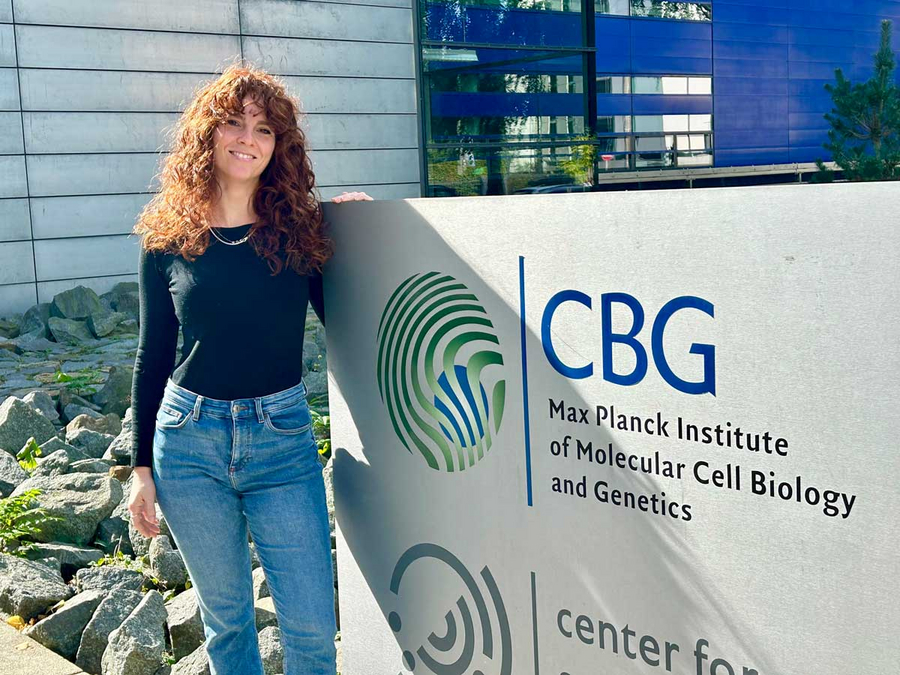
Alice Spadea © Émeline Bonsergent
For her project "Molecular mechanism of LNP-mediated intracellular delivery of RNA," postdoctoral researcher Alice Spadea from the research group of Marino Zerial at the Max Planck Institute of Molecular Cell Biology and Genetics (MPI-CBG) was awarded a Marie Skłodowska-Curie Action (MSCA) Postdoctoral Fellowship. The MSCA fellowship is a component of Horizon Europe, the European Union’s flagship funding program for research and innovation.
Alice explains: “I am grateful for the opportunity to continue my research on the endosomal escape of RNA nano-carriers here at the MPI-CBG. My project focuses on improving how lipid nanoparticles (LNPs) deliver RNA into cells, which is important for treatments like gene therapy. One major issue is that after LNPs enter cells, they often get trapped inside tiny compartments called endosomes, limiting their effectiveness. With my project, I want to better understand and solve this problem by studying how LNPs interact with endosomal membranes by testing different LNP formulations and pH levels. With the help of advanced microscopy techniques, I also aim to recreate the process where RNA moves across endosomal membranes using giant vesicles that mimic endosomes. Finally, I plan to introduce new types of phospholipids to LNPs to see how they fuse with real endosomes in live cells. This will allow tracking of RNA release and whether it successfully leads to protein production in the cells.”
By recapitulating the mechanisms of endosomal escape, the project aims to gain novel insights that will contribute to the development of more effective RNA delivery systems.
MSCA Postdoctoral Fellowships enhance the creative and innovative potential of researchers holding a PhD and wishing to acquire new skills through advanced training and international, interdisciplinary, and inter-sectoral mobility. The funding supports researchers ready to pursue frontier research and innovation projects in Europe and worldwide, including in the non-academic sector.
Congratulations, Alice!